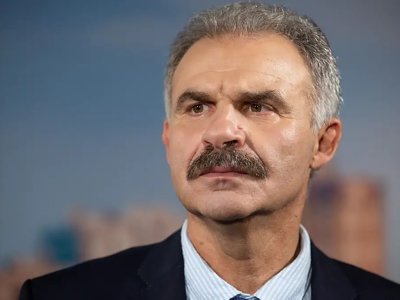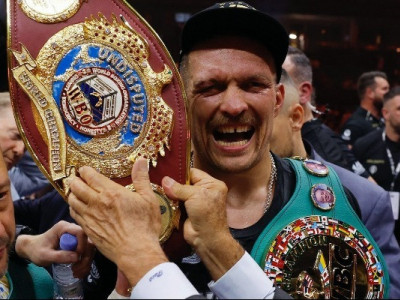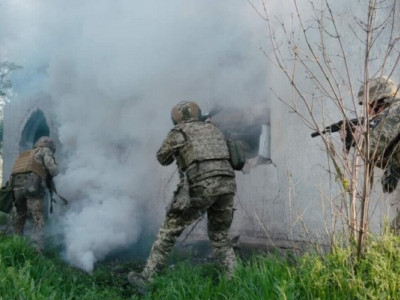Taking into account NGO proposals in Kazakhstan’s legislative activities

In March 2012, while holding position of Deputy Representative of the Ministry of Foreign Affairs of the Republic of Kazakhstan to the OSCE in Vienna, and being responsible for the human dimension, I met with the head of the Kazakhstan International Bureau for Human Rights and Rule of Law, Yevgeniy Zhovtis. At that time, we were able to discuss quite constructively the issues of political development of Kazakhstan and strengthening mechanisms for protection of human rights and democracy in the country.
At that time Zhovtis was planning to go abroad for permanent residence. He was offered to stay in Kazakhstan and participate in human rights activities, to which he agreed and stayed in Kazakhstan. Later he became a member of the consultative and advisory body “dialogue platform on the human dimension” Consultative and Advisory Body “Dialogue Platform on the Human Dimension” under the Ministry of Foreign Affairs of Kazakhstan (CAB), which I initiated.
The platform was created in January 2013 – after my return to Kazakhstan and appointment as Ambassador-at-Large at the Ministry of Foreign Affairs of Kazakhstan (on Human Rights). It was attended by the representatives of all state bodies, members of the Parliament of Kazakhstan, as well as representatives of NGOs, mainly funded by the US and the EU. In addition, representatives of the EU, UNDP, OSCE, USAID, as well as the embassies of the USA, Canada, Germany, and Great Britain attended the Dialogue Platform meetings.
Yevgeniy Zhovtis became not only an active participant of the CAB, but also a manager of the dialog between the state authorities and representatives of the civil sector of Kazakhstan on certain issues.
At the beginning, CAB meetings were very tense, as participants from the civil sector spoke harshly and critically against the state authorities. And this was all in the presence of international organizations and foreign embassies.
When I chaired CAB meetings, I was more supportive of the civil sector than of state bodies, which was a unique phenomenon in itself back in 2013. Representatives of state bodies at that time supported many initiatives of the civil sector, but were afraid of their superiors, some of whom were corrupt. But seeing that I was on the side of NGOs, they also expressed their thoughts, which fully coincided with the proposals of human rights defenders, which was dissonant with the position of their leadership.
All CAB meetings were formed around two issues:1. Taking into account NGO proposals in Kazakhstan’s legislative activities.2. Bringing national legislation in line with the country’s international obligations.
I am grateful to the civil sector for its participation, and to the Kazakhstan International Bureau for Human Rights and Rule of Law for systematizing and storing CAB recommendations, most of which were implemented during the political reform of the head of state – in building a Solidarity of Kazakhstan.
However, this contribution of the Dialogue Platform was not appreciated by civil activists, human rights defenders or our Western partners. Despite my repeated attempts to bring to the attention of the OSCE and the UN the unique effectiveness of CAB in building a dialog between the state and human rights defenders, the great democracies remained deaf and silent to Kazakhstan’s experience.
“Deafness” and “speechlessness” are the main reasons for the stagnation of democracy in the world. Its authors do not want to take into account history and tradition to consistently introduce and develop democratic values in previously closed societies. They want quick and easy victories for which, as in Latin America and the Middle East, local peoples have to pay for decades.
It strikes me that they are trying to make a similar mistake in Central Asia. Using standard molds, they ostentatiously talk about so-called “political prisoners” who are, in fact, criminals of the law.
While promoting democracy, the West itself is mired in corruption, forgetting its values. Thus, in Belgium, the vice-president of the European Parliament and several other people were detained on the case of large bribes. Large sums of cash were seized from them, including from kleptocrats from Kazakhstan.
Many people who receive illegal forms of financial support from these groups from Kazakhstan continue to be deputies not only in Europe, but also around the world, including in the United States. But the European Parliament, and in general, all national parliaments of Western countries remain the bastion of democracy in the world – they decide which democracy programs in Central Asia will receive financial support and which will not.
Last year in Warsaw at the OSCE ODIHR conference as the head of the Public Foundation “National Endowment for Prosperity” I told this to the representatives of 57 OSCE member states, as well as to the European Union. However, my questions about corruption in the world’s democratic institutions remained unanswered.
Such degradation trends have also affected the behavior of the nongovernmental sector in Central Asia. For example, certain NGOs in Kazakhstan that receive international grant funding have begun to strengthen ideological component of their rhetoric, taking it far beyond Kazakhstan’s international commitments and international practices of their implementation.
This, in my understanding, was made possible, among other things, because of the peculiarities of procedures for obtaining foreign grants. Thus, foreign grants to “trusted NGOs” are very easily allocated – on the basis of simple applications in conditions of complete unaccountability to the population, as well as complete lack of civil responsibility for their work. Moreover, foreign grants have never been allocated to NGOs working with the state – in this matter, an unspoken rule of the foreign grant allocation policy remains in place.
It is not surprising that a number of such NGOs, receiving 100% foreign funding, have adapted to the culture of corruption in the West and are engaged in projects parallel to the processes of political – democratic development of Fair Kazakhstan. They are always critical of political processes in Kazakhstan – they are not aware of the rules of maintaining objectivity in their work. Indiscriminate criticism is the only guarantor of preservation of incomes and receipts of foreign grants to their organizations. Discreditation multiplied by disinformation has become their bargaining chip in maintaining long-term financial stability.
The current situation is reaching its critical peak – participants in the political process in Kazakhstan should look back and return to dialog and use the best practices and traditions of CAB work.
The dialog platform at the Ministry of Foreign Affairs should regain its former strength and restore the process of dialog between government agencies and NGOs. The platform should define the agenda of political projects in Kazakhstan for foreign funding, clearly drawing red lines where such funding transforms from constructive to destructive, directly interfering in domestic policy issues.
CAB should regain its role in overcoming possible misunderstandings. The platform should provide guarantees to foreign donors that NGOs receiving their grants are working effectively with the state and influencing political processes, rather than in isolation, wasting foreign taxpayers’ money.
The Caravan.kz editorial board publishes the article without changes in its entirety.
Former Ambassador-at-Large at the Ministry of Foreign Affairs, published an article on the need to return to dialogue.
- Последние
- Популярные
Новости по дням
20 мая 2024







